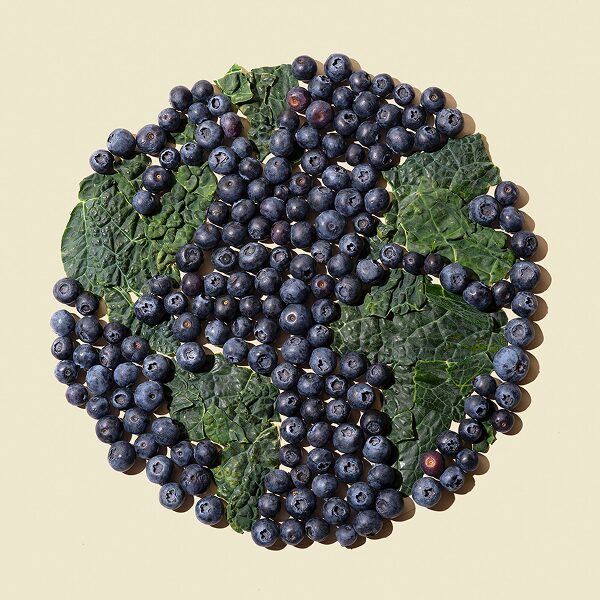Simple choices that are better for you—and the planet

“Sustainability” can sound like a buzzword—but at its core, it’s about making choices that reduce waste, conserve resources, and support a healthier food system. The good news? Eating more sustainably doesn’t mean going fully vegan or shopping exclusively at your local co-op. You can start with something as simple as the groceries you add to your cart.

At Misfits Market, we make sustainable living more accessible by rescuing food that might otherwise go to waste—and delivering it right to your door. Here are ways to build a more sustainable plate, one meal at a time:
1. Choose Foods That Help Prevent Waste
The most sustainable foods are often the ones that would’ve gone uneaten—like “imperfect” produce or surplus snacks with shorter shelf lives. These items are still perfectly high-quality but get rejected by traditional retailers.
At Misfits Market, we specialize in sourcing exactly those foods—rescuing them before they go to waste.
Learn more:
- What Makes Something a Misfit: Why Foods Are Rejected at The Grocery Store
- Why We Rescue Packaged Foods
- Short-Dated Groceries Explained
- Why We Offer Mystery Produce at Misfits Market
2. Support Upcycled and Regenerative Food Systems
Upcycled foods are made from ingredients that might otherwise be discarded—like juice pulp turned into chips or spent grain baked into crackers. Supporting these products keeps usable food out of landfills and rewards innovation in food recovery.
On a broader scale, regenerative and organic farming practices improve soil health, biodiversity, and long-term sustainability. Misfits Market partners with farms that use regenerative, organic, and sustainable methods—including those producing heirloom varieties that promote crop diversity.
Learn more:
- The Ultimate Guide to Upcycled Foods
- Upcycled Recipes for Reducing Food Waste
- What Does Organic Food Really Mean? A Guide to Organic Produce, Farming, and Food
3. Reduce Food Miles Where You Can
“Food miles” refer to how far food travels from farm to plate. The longer the distance, the greater the environmental footprint. Choosing food grown closer to home—especially when it’s in season—can lower emissions tied to transport and storage.
Our model helps reduce food miles by partnering with U.S. farms and shipping directly to customers. We also prioritize seasonal produce to minimize long-haul sourcing.
4. Eat Less Meat—or Shop More Mindfully
You don’t have to go vegetarian to make a difference. Even cutting back on meat a few days a week—or choosing more sustainably sourced options—can lower your impact. If you do eat meat, look for grass-fed, pasture-raised, and animal welfare-certified labels.
We offer carefully sourced proteins that align with our mission to build a better food system—because sustainability includes transparency in how your food is raised and sourced.
Learn more: Why Grass-Fed Beef Is Better—For You, the Planet, and the Cow
5. Rethink “Expiration” Dates
A major contributor to food waste? Confusion around sell-by, best-by, and use-by dates. Many foods—especially pantry staples—are safe long after the printed date.
Learn more: Expiration Date Myths, Busted
6. Get Creative with What You Already Have
From softening produce to that heel of bread you almost tossed, so many items can be transformed with a little creativity. Fridge clean-out meals and scrap-based recipes are low-effort ways to reduce waste.
Try These:
7. Reduce Packaging and Embrace Reuse
Buy in bulk when you can. Opt for items with recyclable or minimal packaging. And reuse jars, bottles, and bags whenever possible—small swaps that reduce your waste long term.
Related: How to Be Sustainable During the Holidays (and Beyond)
8. Support Brands That Prioritize Sustainability
Where you spend your dollars matters. Choosing brands that rescue, reuse, and reduce waste helps support a better, more transparent food system.
At Misfits Market, we work with farmers and producers at every stage—from farm surplus to warehouse overstock—to bring you high-quality groceries that are good for your plate and the planet.
Start Small, Think Big
Sustainable living isn’t about perfection—it’s about progress. Our tips are meant to help you make an impact, starting at home with food sustainability. Every upcycled snack, rescued veggie, and repurposed leftover helps build a better system. And when enough of us start making small changes, the collective impact becomes massive.
- Explore our full Food Waste Hub
- Understanding Food Waste and Its Impact
- How You Can Reduce Food Waste at Home
- Sustainable Meals & More DIYs at Home
- How to Make Your Food Last Longer: Tips for Reducing Waste and Saving More
Shop rescued groceries and upcycled foods at Misfits Market.
